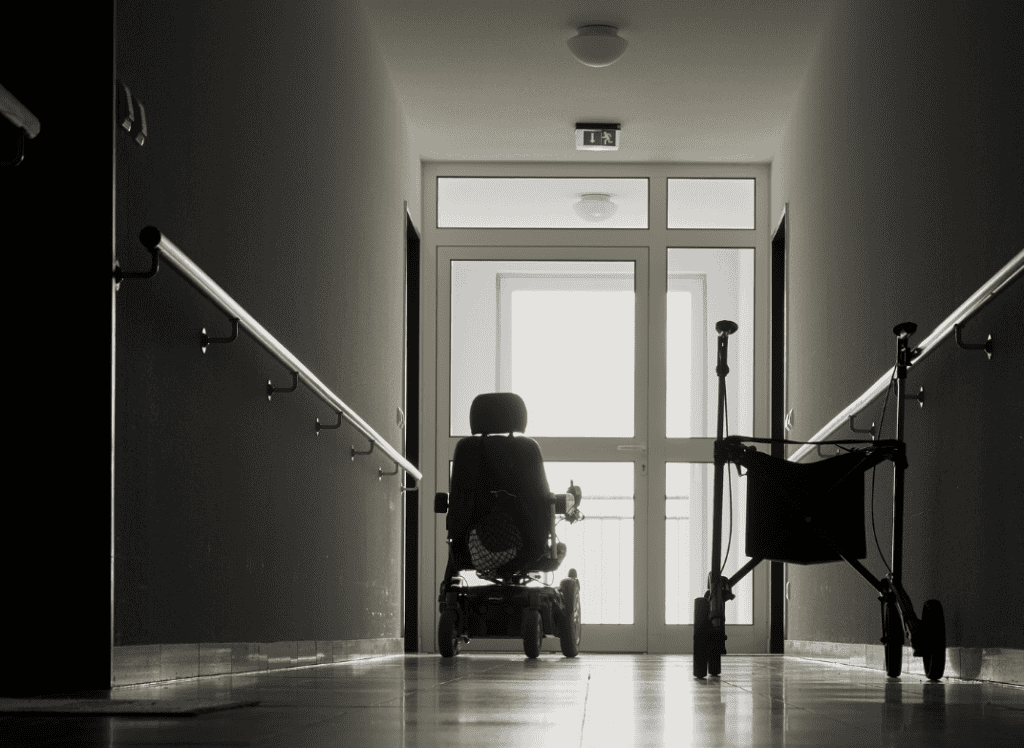The decision to place a loved one in a nursing home is never easy. It’s a decision steeped in a complex mix of emotions – concern for their well-being, a pang of guilt at the thought of not caring for them ourselves, and a flicker of hope that this facility will provide the care and attention they deserve.
But what happens when that hope curdles into a gnawing fear? What happens when the silence from the nursing home starts to speak volumes, painting a picture of neglect that chills you to the bone?
We understand. We’ve seen firsthand the devastation that nursing home neglect can wreak on families across Missouri. According to a 2020 report by the National Center on Elder Abuse, one in ten older adults experiences some form of elder abuse, neglect, or exploitation each year.
This article is for you, the concerned daughter, the worried son, the grandchild with a growing knot of unease in their stomach. We’ll help you identify the signs of nursing home neglect, explain your legal options, and empower you to take action to protect your loved one.

Recognizing the Signs of Nursing Home Neglect
Nursing home neglect can manifest in various ways, some subtle, others blatant. Here are some red flags to watch out for:
- Physical Appearance: Unexplained weight loss, dehydration, bedsores, poor hygiene, or injuries can all be signs of neglect.
- Emotional Demeanor: Is your loved one withdrawn, depressed, or easily agitated? A sudden change in mood could indicate they’re being mistreated.
- Unsanitary Conditions: A persistent foul odor, dirty bedding, or inadequate temperature control are all indicators of a poorly managed facility.
- Medication Errors: Missed medications, incorrect dosages, or side effects without proper intervention can have serious consequences.
- Staff Shortages: Understaffing is a major risk factor for neglect. If you consistently find it difficult to reach staff or get help for your loved one, it’s a cause for concern.
What You Can Do: Taking Action Against Nursing Home Neglect
If you suspect your loved one is being neglected, don’t stay silent. Here’s what you can do:
- Document Everything: Keep a detailed record of your observations, including dates, times, and any witnesses present. Take pictures of injuries or unsanitary conditions.
- Talk to Your Loved One: If possible, speak to your loved one privately and express your concerns. Listen to their fears and experiences.
- Report Your Concerns: File a complaint with the nursing home administrator and the Missouri Department of Health.
- Seek Legal Counsel: A qualified nursing home neglect lawyer can review your case, advise you of your legal options, and advocate for your loved one’s rights.
The Role of a Nursing Home Neglect Lawyer
A nursing home neglect lawyer is your champion in the fight for justice. They possess the expertise to:
- Investigate the Case: They will gather evidence, interview witnesses, and work with medical professionals to build a strong case.
- Hold the Facility Accountable: A lawyer will fight to ensure the nursing home is held responsible for its actions, potentially leading to financial compensation for your loved one’s injuries and suffering.
- Protect Your Loved One’s Rights: They will ensure your loved one is relocated to a safe and caring environment.
- Provide Peace of Mind: Knowing you have a skilled advocate on your side can alleviate some of the stress and emotional burden during this difficult time.
Case Study: A Daughter Fights for Her Father
Imagine Sarah, a concerned daughter who noticed her father, a resident at a St. Louis nursing home, becoming increasingly withdrawn and malnourished. He mentioned feeling neglected by the staff, often left waiting for help for extended periods. Sarah documented these changes, reported them to the facility, but saw no improvement.
Empowered by Knowledge: Sarah contacted a nursing home neglect lawyer. The lawyer investigated Sarah’s claims, uncovering evidence of understaffing and inadequate care. With the lawyer’s support, Sarah filed a lawsuit against the facility, securing a settlement that allowed her father to move to a better nursing home with proper care.
This is just one example of how a nursing home neglect lawyer can make a real difference in the lives of vulnerable adults and their families.

Seeking Answers: Frequently Asked Questions (FAQs)
Here are some of the most common questions we receive about nursing home neglect:
- What are the different types of nursing home neglect? Neglect can encompass a wide range of issues, including failure to provide adequate medical care, hygiene assistance, nutrition, or hydration.
- How much does a nursing home neglect lawyer cost? Many lawyers offer free consultations to discuss your case and the potential fees involved. These fees can vary depending on the complexity of the case.
- What happens if my loved one is afraid to speak up? You can advocate on their behalf. Gather evidence and speak to the staff directly.
- Can I sue the nursing home if my loved one dies due to neglect? In some cases, yes. A nursing home neglect lawyer can advise you of your legal options in such a heartbreaking situation.
Taking the First Step
If you suspect your loved one is being neglected in a Missouri nursing home, don’t hesitate to take action. The sooner you intervene, the sooner you can ensure their safety and well-being. Remember, you are not alone. There are resources available to help you navigate this challenging situation.
- Contact the Missouri Department of Health and Senior Services: You can file a complaint online or by calling their Elder Abuse Hotline at 1-800-392-0210.
- Seek legal counsel: A qualified nursing home neglect lawyer can be your voice and your strength during this difficult time.
We understand that facing the possibility of nursing home neglect can be overwhelming. But know this: you have the power to make a difference. By arming yourself with knowledge and taking decisive action, you can protect your loved one and hold the nursing home accountable for its actions.


